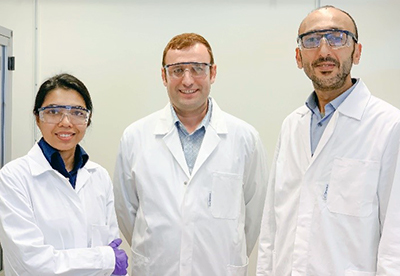New Project to Create Organic Waste-based Biorefinery
Bio4Energy is part of a new multi-partner project to create a biorefinery for organic waste—with end products such as bio-based plastics, animal feed, “green” chemicals, biofuels and higher alcohols (Fusel oil)—in a two-step process.
If successful, the result could become a trendsetter concept for how to create a virtually waste-free system of making the said commodities, but as bio-based alternatives to their current fossil resource-based counterparts.
Researchers at the University of Borås in Sweden gave birth to the idea that the concept of biogas making could be expanded to deliver much more than just biogas car fuel, which is produced from the fermentation of food and agricultural waste in an oxygen-free environment.
In addition to this kind of bacterial break down of organic residues (anaerobic digestion), they want to add two more main processes to reuse all of the contents of the organic waste feedstock. These processes are referred to as ‘membrane reactors’ and ‘biological augmentation’, in scientific speak.
The new concept will be tested at “large-scale” research facilities tied to the University of Borås, according to assistant professor Naser Tavajohi, who heads up Bio4Energy’s contribution to the project from Umeå University.
Although Tavajohi could not give an exact figure on the envisioned capacity, the scale would be near or at the level of industrial implementation. Consultants from RISE Research Institutes of Sweden were set to assist the academic researchers in some part of the project, he told Bio4Energy Communications in an online interview.
The invention of the new system was a way to create maximal resource efficiency, when it came to reusing organic waste and to “close the loop” so that no contaminants or waste are left at the end of operations, he further explained.
Tavajohi of and his research group have their own niche in the project and will add their expertise in separation and purification, something which is required in almost all chemical plants.
The researchers will come in after the first step of conversion of food or agricultural waste, which will produce volatile fatty acids, non-pure hydrogen and alcohols.
Making ‘green’ hydrogen
Their job will be to invent a completely new membrane process that separates carbon dioxide from hydrogen, which is competitively priced and renders a “green” hydrogen, completely bio-based and free of climate-change inducing gases and fossil resources.
The researchers also are responsible for proposing a process that can brought up to industrial scale. The bio-based hydrogen then is intended for use as fuel cells to power automotive transport.
There is a huge market demand for this type of process. At the same time, hydrogen production comes with challenges of scalability, storage, pricing and origin. Whether or not the hydrogen is of fossil-based origin is key.
“We will be using a bio-based polymer to make the membrane [and to ascertain] that the system is scalable and comes at an acceptable cost”, Tavajohi said.
He confirmed that at the end its four-year term, this project funded by the state-run the Swedish Research Council Formas will have been tested in large-scale research facilities.
“With this project we are moving from fossil sources to bio resources. We are approaching the zero-discharge concept. This means that all waste is taken care of [in the production of] biogas, fertilizers and bioplastics.
“If we have any waste, it will be because we don’t know how to use it”, according to Tavajohi.

 Bio4Energy©2022
Bio4Energy©2022



